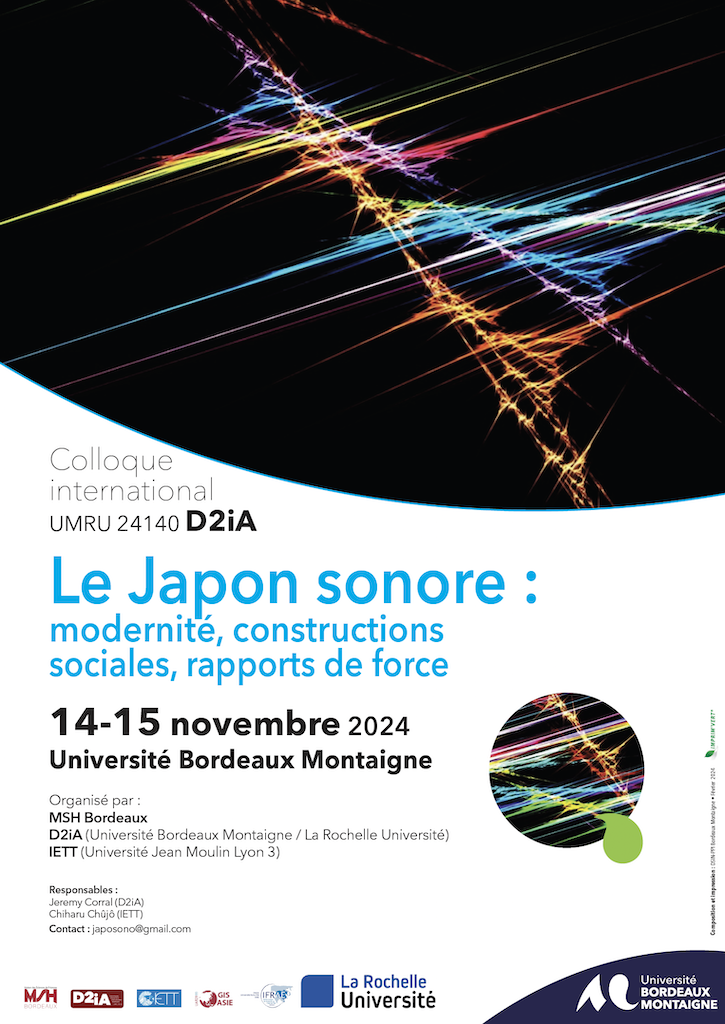« Le Japon au prisme de la dénatalité et du vieillissement de la population »
Appel à communications pour une journée d’étude organisée
les 5 et 6 décembre 2024 à Paris (Inalco & Université Paris Cité)
Argumentaire
Les recherches sur le Japon contemporain se sont largement développées au sein des études japonaises francophones, autour d’objets aussi variés que ceux de la ville, de l’éducation, de la famille, du genre, des minorités, du droit, du travail, des médias, de la sécurité, de la pauvreté ou encore de la santé. Or – les dernières rencontres organisées autour des terrains japonais actuels nous en ont convaincus – ces objets sont tous touchés, d’une manière ou d’une autre, par un même facteur, la démographie, caractérisée on le sait par le double phénomène de la dénatalité et du vieillissement de la population.
L’objectif de cette journée d’étude est de permettre aux différents chercheurs dont les travaux portent sur le Japon contemporain de se rassembler autour de cette thématique. Les participants sont appelés à présenter les impacts de la question démographique sur leurs propres objets de recherche (passés ou actuels). Le but n’est pas tant de traiter du vieillissement ou de la dénatalité en tant que tels, encore que cela soit possible, que de montrer, à partir de cas concrets, comment les évolutions démographiques ont une influence, sur l’organisation de la ville, les modes de sociabilité, la représentation de la famille, les rapports de genre, la place ou les revendications des minorités, les avancées du droit, la structuration du travail, les politiques de sécurité, la vie politique au niveau local, le traitement de la pauvreté ou les problématiques de santé, par exemple.
Chaque communication, d’une durée de 30 minutes, sera suivie d’un temps de discussion. L’ambition finale de cette journée d’étude est la publication d’un livre collectif établissant, à partir d’une mosaïque d’études de cas, un état des lieux de la situation démographique au Japon. Nous attendrons donc des intervenants la transmission d’une version manuscrite de leur communication d’environ 30 à 40 000 signes. Présentation de la journée d’étude sur ce lien.
Calendrier prévisionnel
- 30 juin 2024 : Envoi des propositions de communication (aux adresses mail des organisateurs)
- Proposition de titre
- Nom et affiliation de l’auteur
- Résumé (en français, anglais ou japonais) d’une dizaine de lignes
- 10 juillet 2024 : Réponse du comité d’organisation
- Jeudi 5 et vendredi 6 décembre 2024 : Journée d’étude
- Communication de 30 minutes, suivie d’une discussion
- 2 mars 2025 : Rendu des versions manuscrites des contributions :
- Texte en français de 40.000 signes maximum, espaces, notes, et bibliographie comprises.
Comité d’organisation
- Jean-Michel Butel, Inalco (jean-michel.butel@inalco.fr)
- César Castellvi, Université Paris Cité (cesar.castellvi@u-paris.fr)
- Anne-Lise Mithout, Université Paris Cité (anne-Lise.Mithout@u-paris.fr)
- Naoko Tokumitsu, Inalco (naoko.tokumitsu@inalco.fr)

